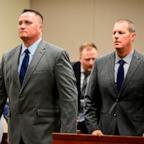Who Will Cash In On Cloning?
N E W Y O R K, May 2 -- Farms full of high-yield, milk-producing cows. Pigs providing organs perfect for human transplants. Bulls bred to help make cancer-fighting drugs. Oh, and carbon copies of your dear, departed cats and dogs.
That's the vision of companies in the business of cloning, as they grapple with a technology that still seems like science fiction but is gradually drawing closer to reality — and which could, in theory, prove highly lucrative.
Those riches loom because the potential uses for cloning cover a broad range of applications: "Cows are a walking bio-factory," says Peter Steineman, a spokesman for Wisconsin-based Infigen, Inc., which has cloned dozens of the animals.
U.S. firms that have already begun cloning animals have a lengthening list of products they're exploring, from food to organ transplants, blood-clotting medicines, cosmetic substances like collagen and more.
Cloning Products: An Interactive Look
But before cloning becomes, well, a cash cow, the major cloning firms in the U.S. must iron out a variety of political, legal and scientific problems, any of which could still help put the industry out to pasture.
For starters, the cloning industry is waiting for a government ruling defining the legal uses of clones. Additionally, three companies are embroiled in a patent dispute over a basic technique used to produce copies of animals. And then there are the ongoing practical problems with cloning, which mean that only a small fraction of cloning attempts are successful.
All told, cloning is an industry that could be going through a lengthy gestation period.
"It's hard to predict when those products are going to come," says Dr. Mark Westhusin, a professor a Texas A&M's veterinary school and a co-founder of Genetic Savings & Clone, a Texas-based firm planning to sell clones of pets to people. "It's still almost really early in the research phase, so there's no income coming from cloning yet."
FDA Approval?
To be sure, some products from cloned animals are already here. For instance, Infigen's cloned cows produce milk every day. But it's not available commercially, because the Food and Drug Administration has yet to issue a comprehensive report assessing whether or not consumer products deriving from cloned animals are safe.




